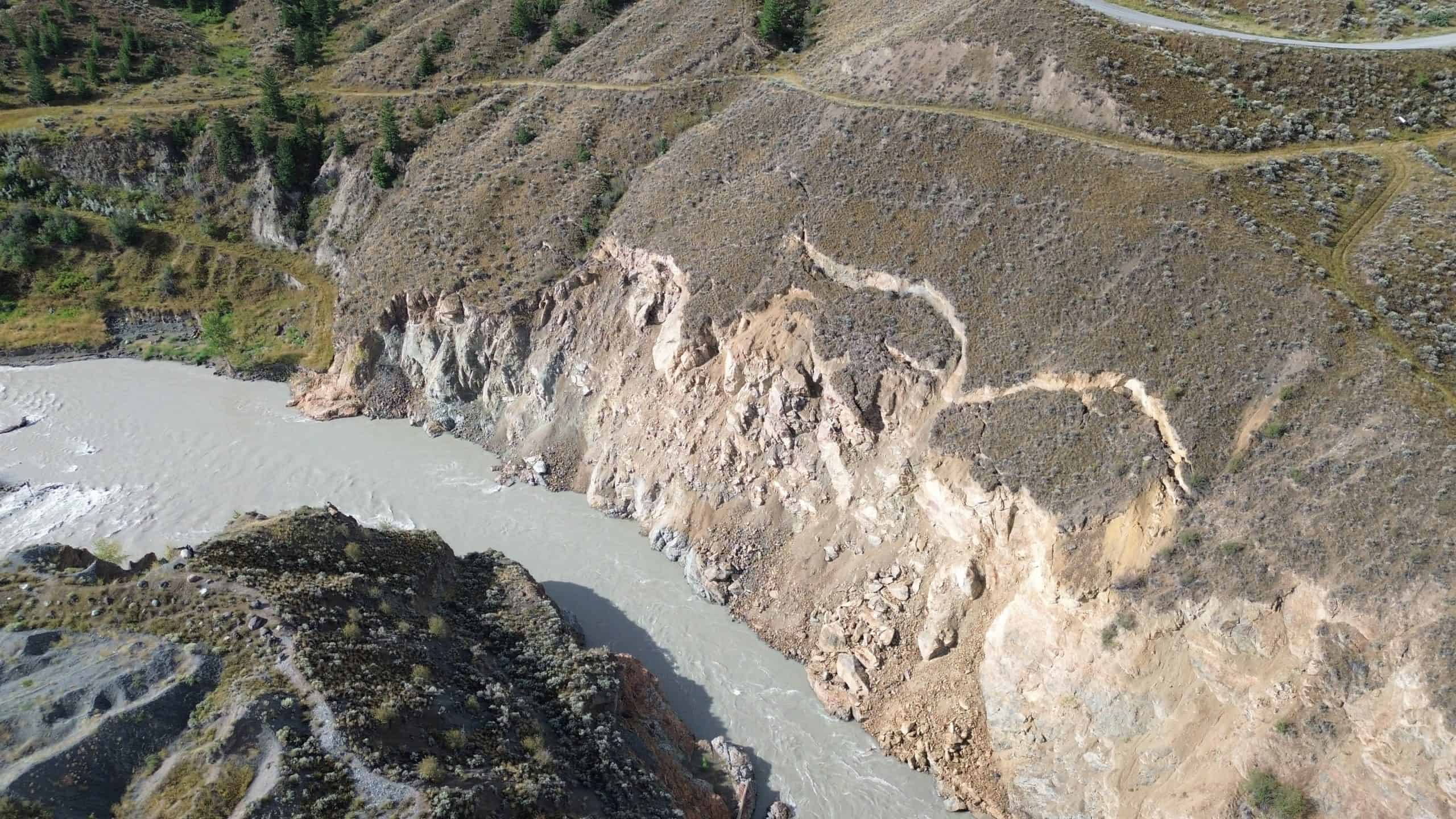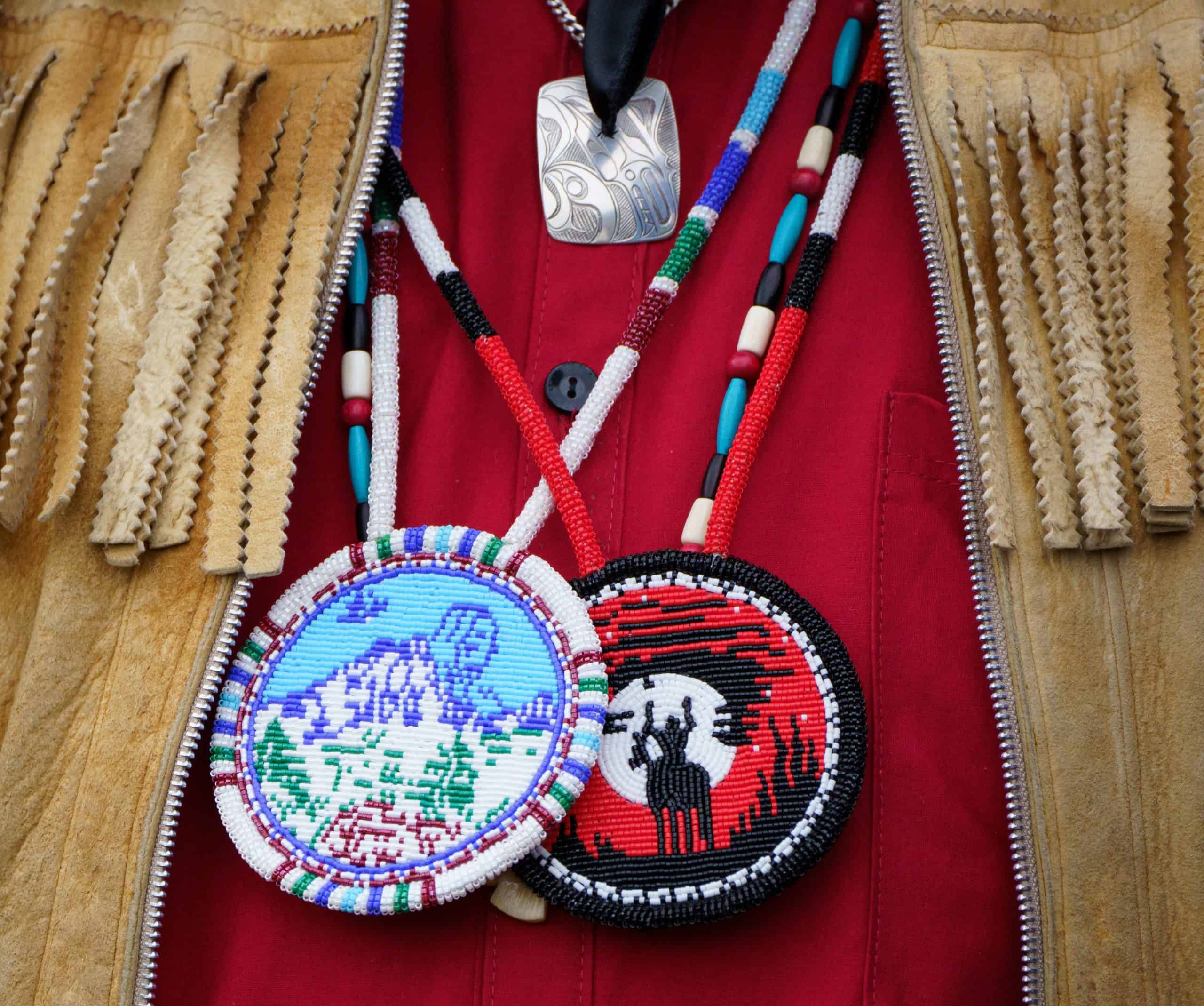Williams Lake, B.C: On Feb. 17, 2022, Tŝilhqot’in Chiefs raised the alarm with senior officials at the 22nd annual Pacific Salmon Commission (PSC) meeting, calling on them to urgently “fix” the unacceptable risk that the Alaskan District 104 Fishery poses to imperilled Fraser River salmon stocks.
Chief Joe Alphonse, elected Chief of Tl’etinqox Government and TNG Tribal Chief, spoke at the Intertribal meeting of Canadian First Nations and US Tribal representatives, including Indigenous Commissioners. Chief Jimmy Lulua, elected Chief of Xeni Gwet’in First Nations Government, publicly addressed the Canadian and US Commissioners at the bi-lateral Commissioners meeting. The Tŝilhqot’in Chiefs called on Canada to trigger a review of the Pacific Salmon Treaty immediately, and called on all parties to do their part to rectify this unacceptable risk, prior to the 2022 fishing season.
In 2019, the Tŝilhqot’in Nation made the difficult decision to close its sockeye fishery for conservation, due to very low ocean returns, and the threat of the Big Bar landslide. The Tŝilhqot’in Nation was shocked to learn that in that same year, the Alaskan District 104 Purse Seine Fishery took almost 78,000 Fraser River sockeye, including 45,000 Chilko sockeye – 20% of the entire run, when all other Canadian and Indigenous directed fisheries were closed. This is not an isolated event. In 2020, Fraser sockeye returned at the lowest number in recorded history, and again the Tŝilhqot’in Nation closed its fishery. That year, the Alaskan Fishery harvested 9% of the Chilko run.
This commercial fishery, located in Alaskan waters north of Haida Gwaii, is sanctioned by Canada and the US through the Pacific Salmon Treaty, and is managed by Alaska. In addition to US-bound pink salmon, the fishery targets Canadian bound salmon, including Fraser River sockeye. While the fishery is authorized by the Pacific Salmon Treaty, it is essentially un-regulated when it comes to Fraser River salmon and does not have mechanisms to address conservation concerns or Indigenous priority rights for Fraser River salmon.
The best available data, used by the PSC, demonstrates that the Alaskan fishery impacts Fraser River sockeye every year. With the dramatic decline of Fraser River sockeye in recent years, this fishery has had significant impacts on specific Fraser River stocks, with implications for both conservation and Indigenous fisheries. Even on years when a stock is of such extreme conservation concern that no Canadian or Washington directed harvest is allowed on these fish, the Alaskan fishery can and will still harvest these fish, as dramatically seen in 2019 and 2020.
At the annual PSC meeting, Tŝilhqot’in Leadership conveyed that urgent, immediate action is required to remove the harvest pressure of this unsustainable fishery on Fraser River stocks. This fishery, agreed upon by Canada and the US in 1985, is no longer acceptable,
and is not in line with the Pacific Salmon Treaty’s own principles of conservation.
Tŝilhqot’in Chiefs call on Commissioners and Indigenous representatives to come together
and solve this issue, prior to the 2022 fishing season.
“We do not have time to wait to fix this. Our salmon are at risk of being destroyed and the consequences are too high for Tŝilhqot’in people, who rely on salmon for sustenance, our
economy and our ability to transmit our culture to future generations. This unacceptable
threat must be addressed now, before our fish return in 2022. The Tŝilhqot’in Nation has
fought and made huge sacrifices to conserve our salmon over the years, including protecting the headwaters in our Title lands where these salmon spawn and rear. Our Nation will not stand by while our stocks are threatened with extirpation, and with it the extinguishment of our rights and cultural practices. Chilko sockeye spawn and rear in our Title lands – this must be respected. Throughout history, for the Tŝilhqot’in, if you threaten our fish, our food source, it is considered a declaration of war. We will consider all options, including legal action, after learning of this clear infringement of our rights.”
— Nits’ilʔin (Chief) Joe Alphonse, Tribal Chair, Tŝilhqot’in National Government
“The strongest annual Fraser River stock, the Chilko sockeye run, returns to our Title lands.
The Tŝilhqot’in Nation has fought off threats to our salmon nurseries and made sacrifices to protect our fish. This Alaskan fishery may be following the letter of the law, but like residential schools, what used to be acceptable, is no longer acceptable, and there are many examples where laws have changed to address a new reality. Changes must be made, and protections for our fish are needed now. The Tŝilhqot’in Nation is an honourable Nation. We call on the Commissioners, as honourable people, to do the right thing and protect our fish. At the end of the day, if there is a threat to our culture and way of life as Tŝilhqot’in people, we will not stand by and watch it be destroyed.”
— Nits’ilʔin (Chief) Jimmy Lulua, Xeni Gwet’in First Nations Government
Jacey Warne
Communications Manager
Tŝilhqot’in National Government
(403) 998-7581
jwarne@tsilhqotin.ca
January 15, 2025 — Williams Lake, BC Tŝilhqot’in Nation Takes Action to Save Chilko Salmon
November 6, 2025 — Williams Lake, BC Tŝilhqot’in Call for End to Political Fear-mongering About

